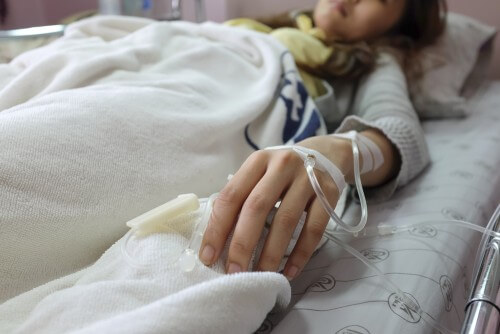Professor Zeev Blumenfeld from the Faculty of Medicine at the Technion: artificial substitutes for the GnRH hormone are an effective means of preserving fertility among women treated with chemotherapy

Chemotherapy treatments, as we know, are difficult treatments that involve pain, nausea and other side effects. Professor Zeev Blumenfeld, head of the Department of Obstetrics and Gynecology at the Rappaport Faculty of Medicine at the Technion, explains that in many cases the chemotherapy treatment causes significant damage to the ovaries of the treated women. The result is the onset of menopause symptoms. This process may include the cessation of the menstrual cycle, hot flashes, depression, vaginal dryness, osteoporosis or osteopenia (which increase the risk of bone fractures), pain during intercourse, and infertility.
"The issue of fertility especially concerns young women undergoing chemotherapy and radiation treatments," explains Professor Blumenfeld, who also serves as a senior physician in the women's and obstetrics department at Rambam Medical College. "The increase in the appearance of malignant diseases even at these ages, and the high survival rate, increase awareness of this matter."
Professor Blumenfeld, who has been researching the issue of fertility preservation among women undergoing chemotherapy treatments for decades, focuses on the use of a substitute for GnRH - the natural hormone responsible for the functioning of the ovaries and the reproductive system. His findings, published in the early 1994s, were verified in 59 by researchers at the University of Cleveland, in a study of rhesus-type boxes. "Recently, we showed that chemotherapy causes the cycle to stop in 9% of cases, but if it is accompanied by the use of a GnRH substitute, this figure drops to only XNUMX%." Professor Blumenfeld noted.
In a new article, recently published in the journal Expert Opinion in Pharmacotherapy, Professor Blumenfeld presents the latest research in the field, and explains why the use of a substitute
GnRH is desirable and beneficial. "The use of a substitute for GnRH generates a temporary and reversible hormonal state in a woman, mimicking the age of childhood before sexual maturity. During childhood, various studies show, the damage to the ovaries as a result of chemotherapy is much smaller (about 10-8%, compared to an average of 40% damage among women aged 40-20). Furthermore, suppressing ovarian activity in this way has another advantage: prevention of heavy menstrual bleeding, which may lead to anemia. For these reasons, the treatment is recommended for patients aged 38-14."
In the new article, Professor Blumenfeld states that this treatment does not conflict with other treatments, such as egg freezing and ovarian segments. "Furthermore, we recommend freezing ovarian segments, since in the future we will know how to put them back in place. To date, five healthy babies have been born in Israel [out of 40 in the entire world] thanks to the transplantation of frozen sections of ovaries that were thawed.
"However, GnRH replacement therapy has an advantage that the other methods do not have - protection of the entire ovarian area. In our current study, which summarizes findings collected from 300 women over three decades, we have proven that the use of a substitute for GnRH results in a significant increase in the number of successful pregnancies, in the preservation of normal ovarian activity and in the prevention of early menopause. Since success is not absolute, we recommend combining the different methods."
